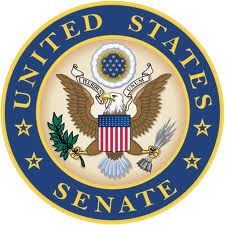 Senators Baucus and Hatch (the Chairman and Ranking Minority Member of the Senate Finance Committee) have introduced Trade Promotion Authority legislation, formally titled the Bipartisan Congressonal Trade Priorities Act of 2014. The legislation grants the executive branch the authority to negotiate trade agreements that can be voted up or down – but not amended – by the legislature. It also sets rules concerning consultations between the branches, and sets formal negotiating objectives.
Senators Baucus and Hatch (the Chairman and Ranking Minority Member of the Senate Finance Committee) have introduced Trade Promotion Authority legislation, formally titled the Bipartisan Congressonal Trade Priorities Act of 2014. The legislation grants the executive branch the authority to negotiate trade agreements that can be voted up or down – but not amended – by the legislature. It also sets rules concerning consultations between the branches, and sets formal negotiating objectives.
Here is the Senate Finance Committee press release. Here is the official summary. Here is the full text. Negotiating objectives for intellectual property are below.
(5) INTELLECTUAL PROPERTY.—The principal negotiating objectives of the United States regarding trade related intellectual property are—
(A) to further promote adequate and effective protection of intellectual property rights, including through—
(i)(I) ensuring accelerated and full implementation of the Agreement on Trade Related Aspects of Intellectual Property Rights referred to in section 101(d)(15) of the Uruguay Round Agreements Act (19 U.S.C. 3511(d)(15)), particularly with respect to meeting enforcement obligations under that agreement; and
(II) ensuring that the provisions of any trade agreement governing intellectual property rights that is entered into by the United States reflect a standard of protec21tion similar to that found in United States law;
(ii) providing strong protection for new and emerging technologies and new methods of transmitting and distributing products embodying intellectual property, including in a manner that facilitates legitimate digital trade;
(iii) preventing or eliminating discrimination with respect to matters affecting the availability, acquisition, scope, maintenance, use, and enforcement of intellectual property rights;
(iv) ensuring that standards of protection and enforcement keep pace with technological developments, and in particular ensuring that rightholders have the legal and technological means to control the use of their works through the Internet and other global communication media, and to prevent the unauthorized use of their works;
(v) providing strong enforcement of intellectual property rights, including through accessible, expeditious, and effective civil, administrative, and criminal enforcement mechanisms; and
(vi) preventing or eliminating government involvement in the violation of intellectual property rights, including cyber theft and piracy;
(B) to secure fair, equitable, and nondiscriminatory market access opportunities for United States persons that rely upon intellectual property protection; and
(C) to respect the Declaration on the TRIPS Agreement and Public Health, adopted by the World Trade Organization at the Fourth Ministerial Conference at Doha, Qatar on November 14, 2001, and to ensure that trade agreements foster innovation and promote access to medicines.




